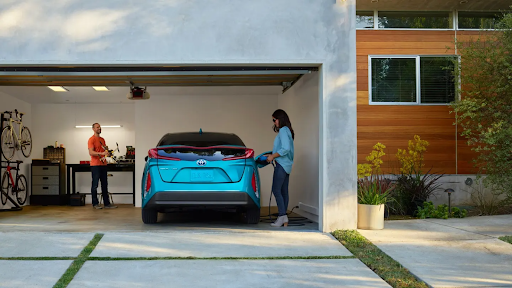Are you considering switching to an electric car? One of the essential aspects of owning an electric vehicle is ensuring that you have a convenient and efficient way to charge it. Many electric car owners prefer to install a charger in their garage for the convenience it offers. However, the question that often arises is, “How much does it cost to install an electric car charger in the garage?” In this article, we will provide you with a comprehensive guide to help you understand the expenses associated with this installation and what factors can influence the final cost.
Factors Affecting How Much To Install Electric Car Charger In Garage
Before we delve into the cost details, it’s essential to know the various factors that can affect the overall expense of installing an electric car charger in your garage. Understanding these factors will help you make an informed decision and estimate the cost more accurately.
1. Charger Type
The type of charger you choose will significantly impact the installation cost. There are three primary charger types:
- Level 1 Charger: These chargers use a standard 120-volt household outlet and are the most affordable to install. They provide a slow charge and are suitable for overnight charging.
- Level 2 Charger: Level 2 chargers require a 240-volt outlet, similar to what you’d use for a clothes dryer or oven. They offer faster charging speeds and are more common for home installations.
- DC Fast Charger: These chargers provide rapid charging, but they are expensive to install and typically reserved for commercial or public charging stations.
The choice of charger type depends on your electric car’s compatibility and your charging needs.
2. Electrical Panel Capacity
Your garage’s existing electrical panel capacity is crucial in determining installation costs. If your panel can handle the additional load of an electric car charger, the installation may be straightforward. However, if an upgrade is necessary, it can add to the total expense.
3. Wiring and Conduit
The length and complexity of the wiring and conduit required for the installation also affect the cost. Longer distances and more intricate setups will increase the overall price.
4. Labor Costs
Labor costs can vary significantly based on your location and the complexity of the installation. Hiring a licensed electrician is essential to ensure a safe and compliant installation.
5. Permitting and Inspection
You may need permits and inspections to comply with local building codes. The costs associated with permits and inspections can vary depending on your location.
6. Brand and Model of Charger
The brand and model of the electric car charger you choose can also influence the cost. Some brands offer more expensive, feature-rich chargers, while others provide more budget-friendly options.
The Average Cost to Install an Electric Car Charger in a Garage
Now that you understand the factors that can impact the installation cost, let’s discuss the average expenses associated with installing an electric car charger in your garage.
Level 1 Charger
On average, installing a Level 1 charger in your garage can cost anywhere from $300 to $600. These chargers are the most budget-friendly option, mainly because they utilize existing 120-volt outlets.
Level 2 Charger
Installing a Level 2 charger is more expensive, with costs ranging from $600 to $1,200. This higher price is due to the need for a 240-volt outlet and potentially more extensive wiring.
DC Fast Charger
DC Fast chargers are considerably more expensive to install, typically ranging from $10,000 to $40,000. These chargers are primarily for commercial or public use and require substantial electrical work.
Keep in mind that these are average costs, and your specific installation may fall outside these ranges based on the factors we discussed earlier.
Additional Considerations
When budgeting for an electric car charger installation, it’s essential to factor in additional costs, such as:
- Operating Costs: Electricity costs for charging your car will increase, but they are generally lower than fuel costs.
- Maintenance: Electric car chargers require minimal maintenance, but it’s a good idea to include maintenance expenses in your budget.
- Charging Accessories: You may need to purchase additional charging accessories, such as cables and connectors.
- Tax Incentives: Check if there are any local or federal tax incentives or rebates available for installing an electric car charger.
Conclusion
Installing an electric car charger in your garage is a practical and convenient way to charge your electric vehicle. The cost of installation varies based on charger type, electrical panel capacity, wiring, labor, permits, and the brand of the charger. To get an accurate estimate, it’s recommended to consult with a licensed electrician or an installation professional.
By understanding the factors affecting the cost and considering additional expenses, you can make an informed decision on how much to install an electric car charger in your garage. As the adoption of electric vehicles continues to grow, having a home charger becomes more valuable than ever.
Incorporating an electric car charger into your garage is not just a smart investment for your vehicle but also for the environment. As you take this eco-friendly step, you’ll enjoy the convenience and savings that come with it.
